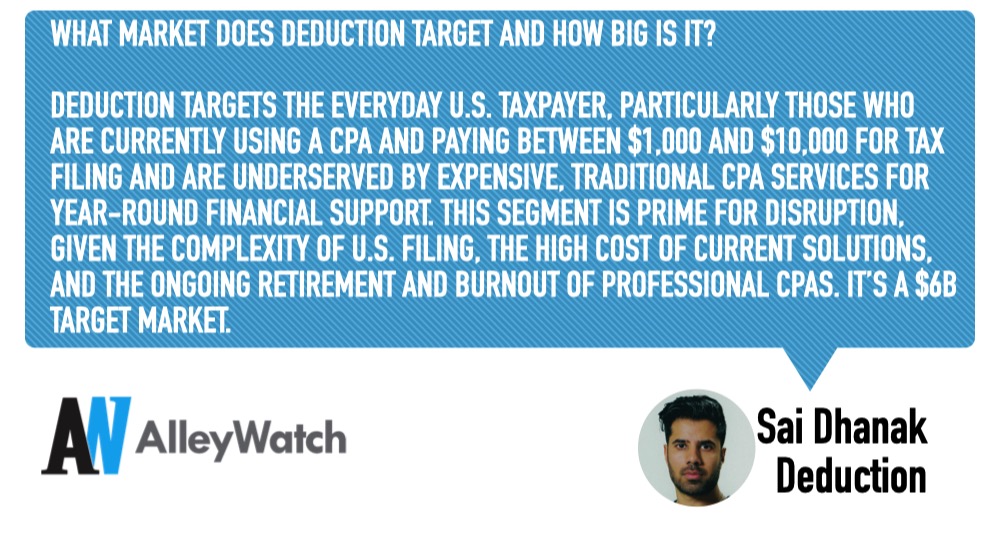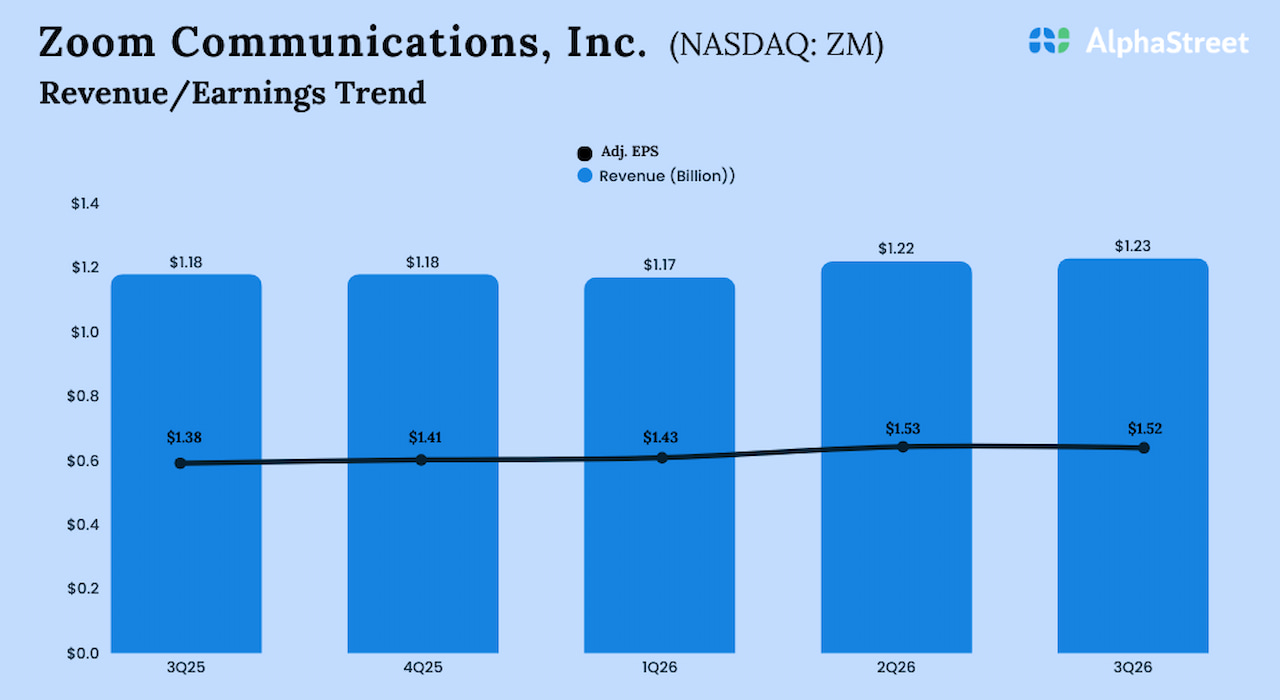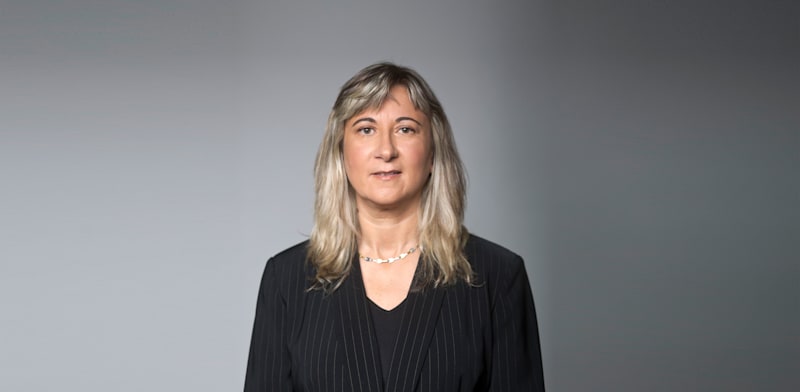Americans can easily spend anywhere between $1,000 and $10,000 annually on tax preparation, yet still wait weeks for responses from their accountants, a system that’s reaching a breaking point. With three out of four CPAs approaching retirement and accounting program enrollment declining nationwide, the traditional tax preparation industry faces a severe capacity crisis just as tax complexity continues to escalate. Deduction addresses this shortage by deploying Taylor, CPAI, the first AI tax accountant built specifically for consumers, that combines autonomous AI capabilities with human CPA oversight to deliver on-demand filings, year-round financial planning, and fast answers for a fraction of traditional costs. Unlike existing AI tax tools designed for professionals, Deduction serves everyday taxpayers through natural communication channels – call, text, chat, or email – with no app or questionnaire required. The company, which just emerged from stealth, has already completed filings and is now deploying to customers ahead of the 2026 tax season, backed by a growing team including engineering, marketing, and CPA talent from Square, Robinhood, Strike, and Gusto.
AlleyWatch sat down with Deduction CEO and Cofounder Sai Dhanak to learn more about the business, its future plans, recent funding round, and, much, much more…
Who were your investors and how much did you raise?$2.8M pre-seed round led by One Way Ventures and Creator Ventures, with participation from Alpine VC, Intuition, Charley Moore, founder of Rocket Lawyer, and angels from OpenAI and Robinhood.
Tell us about the product or service that Deduction offers.Deduction’s AI agent – Taylor, CPAI – works as your personal CPA, filing taxes, proactively organising financial documents, and answering financial questions year-round. Users interact with Taylor via call, text, chat, or email – no app needed. Most importantly, there’s always a human in the loop to ensure Taylor’s work is top-tier.
What inspired the start of Deduction?Jonathan Kieliszak and I founded Deduction earlier this year. Having grown up in the U.K where taxes are largely automated, I was struck by the complexity of filing in the U.S., while Jonathan, hailing from a family of CPAs, saw how burnout and low technology adoption were limiting the profession.Consumers are currently paying $1,000 – $10,000 to file taxes and waiting weeks for replies. Considering that 3 in 4 CPAs are approaching retirement and an ongoing decline in accounting program enrollment, the traditional system is overdue for disruption.
How is Deduction different?Consumers with medium to high complexity taxes have two choices today: spend 90mins and hope they get things right on DIY tax products like Turbo Tax, or spend $1000+ for an accountant where the experience can be very analogue, with slow responses and a lack of proactive all-year advice.Deduction is designed to give everyone a personal accountant in their pocket for a reasonable price with the intelligence AI and the trust and support of a human CPA. All for a fraction of the price of an accountant.
What market does Deduction target and how big is it?Deduction targets the everyday U.S. taxpayer, particularly those who are currently using a CPA and paying between $1,000 and $10,000 for tax filing and are underserved by expensive, traditional CPA services for year-round financial support. This segment is prime for disruption, given the complexity of U.S. filing, the high cost of current solutions, and the ongoing retirement and burnout of professional CPAs. It’s a $6B target market.

What’s your business model?Our business model offers a cost-effective, continuous, AI-driven partnership, replacing the high per-service fees of traditional CPAs with a year-round subscription. While technology allows us to scale, our services are backed by human CPA reviews for quality assurance. This subscription model provides a superior value proposition compared to incumbent platforms like TurboTax for clients seeking year-round financial advice and planning.
How are you preparing for a potential economic slowdown?Taxes are one of a handful of industries that are recession proof. Further, Deduction is significantly more cost-efficient than traditional CPA services, positioning it as an indispensable budget-conscious alternative during an economic slowdown. The combination of an AI agent, Taylor, CPAI, and a human-in-the-loop ensures top-tier quality and efficiency, making it an essential switch from expensive, slow legacy systems.
What was the funding process like?The funding process for the $2.8 million pre-seed round was driven by the urgency of the problem Deduction is solving. Investors recognized the large, underserved market facing a decline in CPA professionals, leading to strong conviction from firms like One Way Ventures and Creator Ventures that this disruption was overdue.
What are the biggest challenges that you faced while raising capital?Raising capital for a consumer tax company came with a few unique challenges. We had to educate investors on why tax is more than a once-a-year transaction and why approaching it as a consumer-first product, not a back-office tool, was essential to unlocking year-round value. Many investors initially viewed the category as seasonal or hard to differentiate, so we had to clarify our defensibility, ongoing engagement model, and how AI changes the economics of deduction discovery. And because tax is a regulated space, we navigated a higher diligence bar around security, compliance, and data protection. Overall, the hardest part wasn’t generating interest—it was helping investors appreciate the scale of the consumer opportunity, the huge supply problem that the CPA industry is facing, and why this is the right moment for innovation.
What factors about your business led your investors to write the check?Investors were convinced by our unique founding story—a co-founder who experienced the simplicity of the U.K.’s automated tax system and another who grew up around a CPA family, gaining early insight into the complexity and human effort behind U.S. tax preparation—paired with the advantage of not being first-time founders. They also recognized the urgency created by the looming shortage of tax preparers, which is making human-powered tax help increasingly scarce. Combined with our distinctive product approach—delivering a human-like experience through call, text, chat, or email without requiring an app—investors saw a rare opportunity: a consumer-first solution built for everyday taxpayers at a moment when the industry is structurally unable to meet demand.
Investors were convinced by our unique founding story—a co-founder who experienced the simplicity of the U.K.’s automated tax system and another who grew up around a CPA family, gaining early insight into the complexity and human effort behind U.S. tax preparation—paired with the advantage of not being first-time founders. They also recognized the urgency created by the looming shortage of tax preparers, which is making human-powered tax help increasingly scarce. Combined with our distinctive product approach—delivering a human-like experience through call, text, chat, or email without requiring an app—investors saw a rare opportunity: a consumer-first solution built for everyday taxpayers at a moment when the industry is structurally unable to meet demand.
What are the milestones you plan to achieve in the next six months?Over the next six months, our priorities are clear. First, we’re using this upcoming tax season to validate product-market fit—refining our consumer experience, testing our messaging, and proving that our human-like, app-free approach resonates with everyday taxpayers. Second, we’re enhancing our security and privacy posture to deepen trust, including strengthening our controls, auditing our AI workflows, and continuing to align with IRS and FTC requirements. And third, we’re focused on brand and distribution: establishing a trusted consumer brand, running early demand-generation experiments, and demonstrating that we can acquire and retain users efficiently. Together, these milestones position us for scale and set the foundation for long-term category leadership.
What advice can you offer companies in New York that do not have a fresh injection of capital in the bank?Pick a problem that will sustain you for 5 years or more, not what your peers or the zeitgeist think will make for a good company. The other slightly contrarian perspective would be not to start with a revolutionary solution. The most successful AI products right now are as good as the status quo, and then just a bit better, faster, cheaper, or magical. Take cursor, it’s as good as any IDE, but then added auto-complete. It’s hard to sell a revolution but it’s easy to sell better, and better compounds over time into something revolutionary.
Where do you see the company going now over the near term?In the near term, we’re focused on becoming the most trusted, accessible way for everyday people to get their taxes done with confidence.
What’s your favorite fall destination in and around the city?Reading a book by the fireplace at the Marlton Hotel.





















